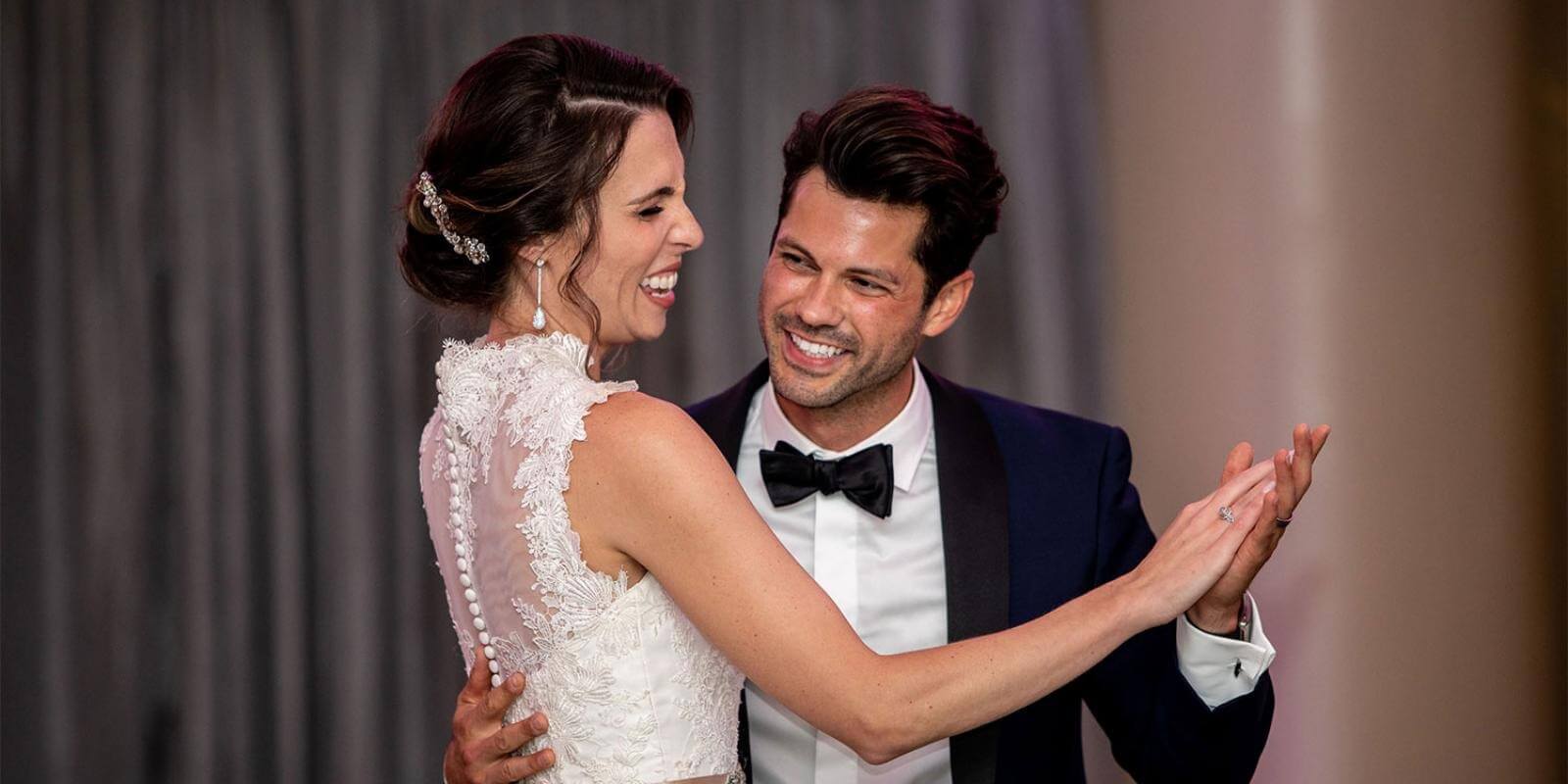Did the Bible foreshadow the hit reality series ‘Married at First Sight’?
From Isaac and Rebekah to reality TV: The Torah’s arranged marriages may have more in common with modern matchmaking than you think

A scene from “Married at First Sight,” a reality show where couples meet on their wedding day. Courtesy of Lifetime
I just finished bingeing the latest season of Married at First Sight — the reality show where complete strangers marry at the altar before they even learn each other’s names.
It sounds wildly modern — engineered for our age of algorithmic romance and TikTok confessionals — but as I watched the season unfold, I realized I’d seen this experiment before. Not on TV. In Genesis.
The Bible — that ancient, scandal-filled, dysfunctional family drama — got there first.
Married at First Sight is not a departure from religious tradition; it’s a reboot.
For the uninitiated, Married at First Sight is part reality show, part arranged marriage experiment. Experts sift through thousands of applications and pair up five couples who agree to get legally married the moment they meet.
Cameras follow them from the wedding to their honeymoon, then into furnished apartments where they live for eight weeks. Throughout the process, a pastor, a marriage counselor, and a sex therapist serve as the show’s resident experts — checking in regularly, offering real-time advice, and functioning as emotional support hotline and divine intervention.
Each season takes place in a different city — this most recent one was in Chicago; the next, set in Austin, is expected to premiere this fall on Peacock. And beyond the U.S., there are Married at First Sight franchises across the globe, including Australia, the U.K., and even Israel.
At the end comes “Decision Day,” when each couple must choose: stay married or file for divorce. (Yes, these are legally binding marriages.) Since the show debuted in 2014, 12 couples are still married — and there are now a dozen Married at First Sight babies. Last week came news that two more are on the way.
First comes marriage, then love
Biblical matchmaking wasn’t driven by compatibility metrics, but it was no less curated. In many cases, the couple had little say in the matter. Take Rebekah and Isaac. Abraham’s servant, Eliezer, goes to find a wife for Isaac. He stops at a well — reality TV’s version of a singles mixer — and prays that the right woman will not only offer him water, but also volunteer to water his camels.
Enter Rebekah. She checks every box: kind, generous, good lineage. She agrees to marry Isaac sight unseen. “I will go,” she says, like a contestant accepting a producer’s offer to pack her bags and fly to Chicago. And when she finally sees Isaac, in a scene that could be in a romantic comedy, she falls off her camel — perhaps from love at first sight or because camels are, objectively, difficult to dismount gracefully.
They marry that day.
Like Married at First Sight, these stories often hinge on faith — not in each other, necessarily, but in the system that brought them together.
But what makes the show and the scriptures truly kindred texts is their shared belief that love is not a prerequisite for marriage — it’s a potential outcome. Genesis says Rebekah and Isaac married, and then fell in love. In Fiddler on the Roof, Tevye and Golde follow a similar “married at first sight” path.
That potential has become part of the reality show’s ongoing story. Couples who stay together often become recurring characters in the ever-expanding Married at First Sight cinematic universe, starring in spinoffs like Couples’ Cam and Happily Ever After. The series’ first couple, Jamie Otis and Doug Hehner, are still married 11 years later — and now have four kids. (When I met them at an event in Sarasota, I geeked out like someone taking a selfie with biblical royalty.)
This might help explain why religious viewers — especially those from arranged marriage cultures — don’t find Married at First Sight as surprising. The quick wedding isn’t a shock; the cameras are. The Torah didn’t film Isaac and Rebekah’s first argument or send a therapist to mediate.
Of course, the Bible lacks a reunion episode. We never see Jacob, Rachel, Leah, and Laban sit on matching couches while an angel in a blazer asks them how they really felt about the arranged marriage process. This is a missed opportunity.
Then again, we’re still talking about them 3,000 years later. That’s decent ratings.
Of course, the reality show has its critics — and its casualties. A few seasons have ended with restraining orders. Others with lifelong partnerships. Many, with tears.
Marriage in the Bible, too, rarely follows a tidy arc. It’s often transactional, occasionally divine, and always shaped by the unpredictable chemistry of faith, circumstance, and timing. Jacob works for seven years to marry Rachel — only to wake up next to her sister, Leah. Ruth throws herself at Boaz’s feet in a grain field, and they go on to become ancestors of King David.
David marries Abigail after her first husband dies mysteriously — a plot twist even a producer might flag as too dark. What unites these ancient unions with their reality TV descendants is a willingness to leap — into uncertainty, into covenant, into someone else’s story.
Married at First Sight is not blasphemy. It’s a 21st-century take on a timeless dilemma: What happens when commitment precedes chemistry? Can love grow in the soil of obligation? And who gets to decide what makes a marriage holy — a rabbi, a reality TV producer, or a camel at the right well?
Like any good biblical tale, Married at First Sight doesn’t wrap things up neatly — it invites interpretation. Each couple becomes its own midrash: a living commentary on love, faith, and whatever happens after the cameras stop rolling.
















